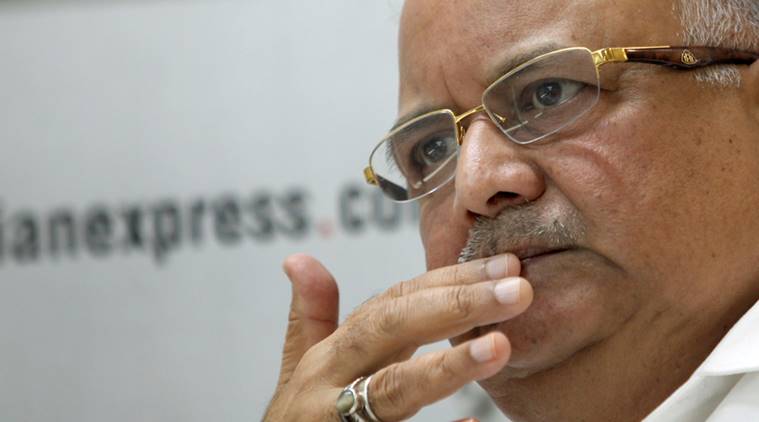 Chief Minister Raman Singh (Express photo by Ravi Kanojia/File)
Chief Minister Raman Singh (Express photo by Ravi Kanojia/File)
Days after the Chhattisgarh Police issued formal orders to implement the Supreme Court’s amendments to the Scheduled Castes and Scheduled Tribes (SC/ST) Act, state Chief Minister Raman Singh on Tuesday said the order stands suspended. He also said the state government, working in coordination with the Centre, will file an appeal in the apex court against the order.
“We have always been sensitive towards the cause of SCs & STs, however state govt, just like Centre, will appeal against decision of Supreme Court. Till then the order (to strictly implement the Supreme Court order) by Police headquarters stands cancelled,” Raman Singh was quoted as saying by ANI.
“Once the Supreme Court issues directives, it is routine practice for the administration to issue orders to the lower rank and file to apprise them of what the Supreme Court has said. This has happened in changes of law of juvenile justice, rape and so on. The police are duty-bound to follow Supreme Court directives. If the Supreme Court were to review the changes, then, of course, the police would do so too,” a senior police official in Chhattisgarh had said.
The Congress party, on Monday, had launched an attack against the Chhattisgarh government, accusing the BJP of doublespeak on the issue. “The Bharatiya Janata Party (BJP) government in Chhattisgarh has gone ahead and started the implementation of the diluted version of the SC/ST Act and also promised disciplinary action against those who do not implement the diluted version of the Act. This is a clear case of the BJP’s unabashed double-speak duplicity and deceit,” Congress spokesperson P.L. Punia said, reported IANS.
The Indian Express had earlier reported that apart from Chhattisgarh, at least two more BJP-ruled states, including Madhya Pradesh and Rajasthan, had directed the police to implement the order, even while the Centre has filed a review petition and is seeking a recall of the order. Kerala is the only state to have challenged the order, while in poll-bound Karnataka, the order has been circulated informally.
The Supreme Court in its March 20 order forbids arrest under the SC/ST Act without prior sanction. It also laid down stringent safeguards, including provision for anticipatory bail and vetting of a complaint to determine if a case is made out before registration of an FIR under the Act. The order caused widespread outrage among Dalits who took to streets to stage their protests. The Opposition called the apex court’s order a dilution of the Act while questioning the government’s credentials on empowerment of Dalits.